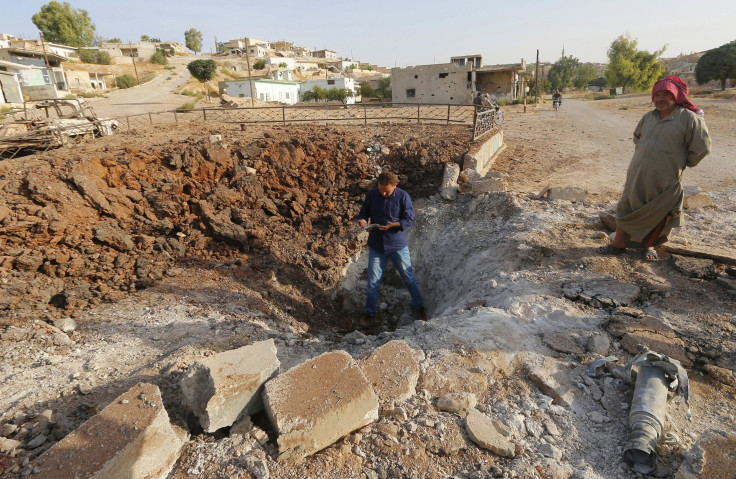Russian Airstrikes On Syria Push Obama Administration To Scale Back Effort To Oust Assad

The White House is changing its Syria strategy again. After years of calling for the ouster of President Bashar Assad, the Obama administration has privately decided that, for now, it is in the United States' interest that Assad remain in power. The policy change would allow Russia to continue its military intervention in the country, analysts and White House senior political advisers say.
On Friday, the Pentagon announced that it would end the training of anti-Assad rebels. The announcement came at the same time as senior White House officials began putting together a plan to implement local ceasefires in the country -- a tactic that would work only if Assad is in place for negotiations. National Security Council staffers, including senior coordinator for the Middle East Rob Malley, are advising Obama that having Assad in power is the best way to keep discussions open with Russia and prevent the Islamic State group from gaining ground.
“They don’t want Assad to fall right now, because they don’t want ISIS to take over everything,” said Mohammed Ghanem, a senior political adviser in Washington at the Syrian American Council, a grassroots organization based in Chicago.
Not everyone in the administration agrees on that strategy. Top U.S. officials including U.S. Ambassador to the United Nations Samantha Power and Secretary of State John Kerry, who have both pushed for a no-fly zone in Syria, want the United States to put more pressure on Assad.
Growing chaos in Syria over the past week prompted congressional lawmakers to speak out as well.
“To accept Assad’s presence in Syria dooms any prospect for peace. He is a mass murderer who has tortured, gassed, and bombed the Syrian people. The graphic images of torture and death presented before our committee ... leave no question that Assad is a war criminal,” Rep. Ed Royce, chairman of the Committee on Foreign Affairs, told International Business Times. “He must go.”
The long-standing disagreement in the administration intensified this week when Russia began bombing rebel targets in Syria: Those rebels had been trained and supported by Washington.
State Department spokesperson John Kirby dodged questions in a press briefing Friday about whether the U.S. knew that Russia was going to begin airstrikes. He said only that Russia's actions did not deter the administration from cooperating with Moscow. Kremlin airstrikes have hit both rebels and Islamic State targets in the past week.
Analysts suspect the U.S. knew about Russia's plan and allowed it to go forward.
"The Russians have been warning about doing this for years," said Andrew Tabler, a Syrian expert at the Washington Institute for Near East Policy, a D.C. think tank. "The U.S. doesn't have a military policy to counter Russia's actions in Syria. What we are basically saying is that what they are doing is okay."
Ghanem said the "U.S. got played."
"Putin thinks Obama isn't going to do anything about this, so he is just going to do whatever he wants," Ghanem said.
The disarray within the administration was visible in the competing remarks from different departments. In a press briefing Thursday, Kirby said the U.S. was “seeing increasing fragility” in the Assad regime in large part because of the U.S. support for the moderate opposition. But Friday, Secretary of Defense Ashton Carter said he “wasn’t happy with the early efforts” of the program to train and equip moderate Syrian rebels.
The train-and-equip program will halt the "train" aspect because it was difficult to find fighters who wanted to battle only ISIS and not Assad.
“Secretary of Defense Ash Carter is now directing the Department of Defense to provide equipment packages and weapons to a select group of vetted leaders and their units so that over time they can make a concerted push into territory still controlled by ISIL,” a Pentagon statement said. “We will monitor the progress these groups make and provide them with air support as they take the fight to ISIL.”
The U.S. will now be working primarily with the Kurdish fighters in Syria, not the moderate rebels.
Ghanem said the National Security Council will meet next week to talk about implementing the local ceasefires in Syria. The U.S. will also keep discussions open with Russia in order to avoid a direct military confrontation.
“The U.S. has had an arms-length approach on Syria and they still do,” Ghanem said. “It’s the president. He does not want to intervene. It all boils down to one man.”
© Copyright IBTimes 2024. All rights reserved.




















